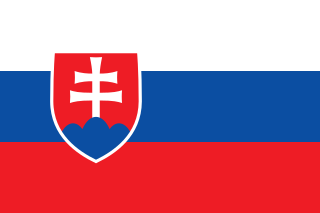
Czechoslovakia submitted films for the Academy Award for Best Foreign Language Film between 1964 and 1991 before splitting into the independent Czech and Slovakia republics in 1993. The award is handed out annually by the United States Academy of Motion Picture Arts and Sciences to a feature-length motion picture produced outside the United States that contains primarily non-English dialogue. [1]

Czechoslovakia, or Czecho-Slovakia, was a sovereign state in Central Europe that existed from October 1918, when it declared its independence from the Austro-Hungarian Empire, until its peaceful dissolution into the Czech Republic and Slovakia on 1 January 1993.

The Czech Republic, also known by its short-form name, Czechia, is a country in Central Europe bordered by Germany to the west, Austria to the south, Slovakia to the east, and Poland to the northeast. The Czech Republic has a landlocked and hilly landscape that covers an area of 78,866 square kilometers (30,450 sq mi) with a mostly temperate continental climate and oceanic climate. It is a unitary parliamentary republic, with 10.6 million inhabitants. Its capital and largest city is Prague, with 1.3 million residents; other major cities are Brno, Ostrava, Olomouc and Pilsen.

Slovakia, officially the Slovak Republic, is a landlocked country in Central Europe. It is bordered by Poland to the north, Ukraine to the east, Hungary to the south, Austria to the west, and the Czech Republic to the northwest. Slovakia's territory spans about 49,000 square kilometres (19,000 sq mi) and is mostly mountainous. The population is over 5.4 million and consists mostly of Slovaks. The capital and largest city is Bratislava, and the second-largest city is Košice. The official language is Slovak.
Contents
Czechoslovak films received six Oscar nominations for the Academy Award for Best Foreign Language Film, two of which won the Oscar, namely the Slovak language The Shop on Main Street and the Czech language Closely Watched Trains, both of which are black comedies set during World War II. Director Miloš Forman had two of his films selected to represent Czechoslovakia in the 1960s, and both were nominated. Forman eventually won two Oscars for Best Director after emigrating to the United States.

Slovak or less frequently Slovakian is a West Slavic language. It is called slovenský jazyk or slovenčina in the language itself.

Czech, historically also Bohemian, is a West Slavic language of the Czech–Slovak group. Spoken by over 10 million people, it serves as the official language of the Czech Republic. Czech is closely related to Slovak, to the point of mutual intelligibility to a very high degree. Like other Slavic languages, Czech is a fusional language with a rich system of morphology and relatively flexible word order. Its vocabulary has been extensively influenced by Latin and German.

World War II, also known as the Second World War, was a global war that lasted from 1939 to 1945. The vast majority of the world's countries—including all the great powers—eventually formed two opposing military alliances: the Allies and the Axis. A state of total war emerged, directly involving more than 100 million people from over 30 countries. The major participants threw their entire economic, industrial, and scientific capabilities behind the war effort, blurring the distinction between civilian and military resources. World War II was the deadliest conflict in human history, marked by 70 to 85 million fatalities, most of whom were civilians in the Soviet Union and China. It included massacres, the genocide of the Holocaust, strategic bombing, premeditated death from starvation and disease, and the only use of nuclear weapons in war.
After the breakup of Czechoslovakia, the Czech Republic and Slovak Republic both began submitting films to the competition regularly. Since then, the Czech Republic has gotten three more Oscar nominations, including one win for Jan Svěrák's Kolya . [2]

Jan Svěrák is a Czech film director. He is the son of screenwriter and actor Zdeněk Svěrák. He studied documentary filmmaking at the FAMU. He and his films have received awards including the Academy Award, Crystal Globe, Golden Globe Award, and Tokyo Grand Prix.

Kolya is a 1996 Czech drama film about a man whose life is reshaped in an unexpected way. The film was directed by Jan Svěrák and stars his father, Zdeněk Svěrák, who also wrote the script from a story by Pavel Taussig. Kolya earned critical acclaim and won the Academy Award for Best Foreign Language Film and Golden Globe Award for Best Foreign Language Film.

